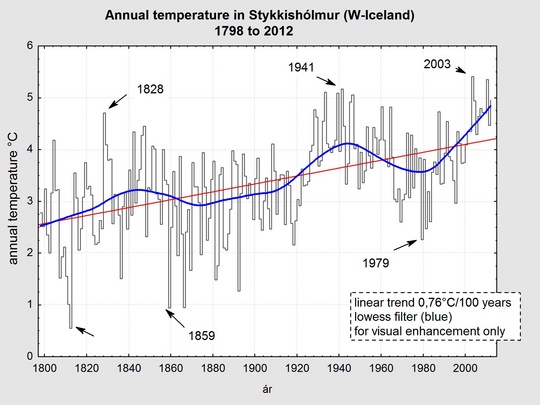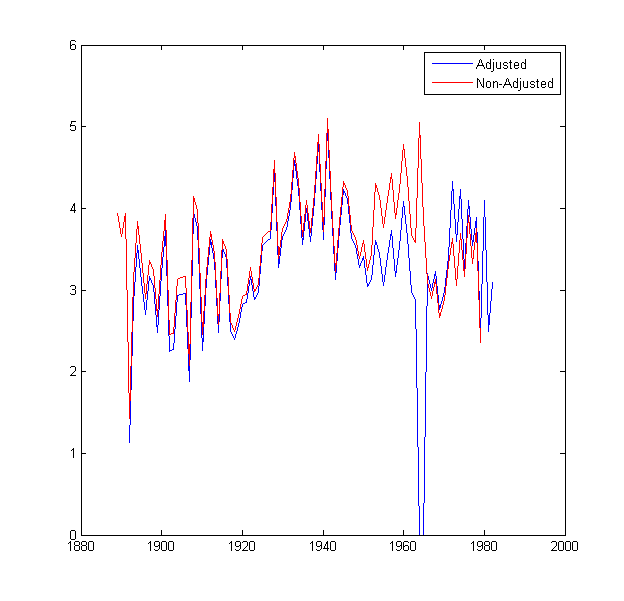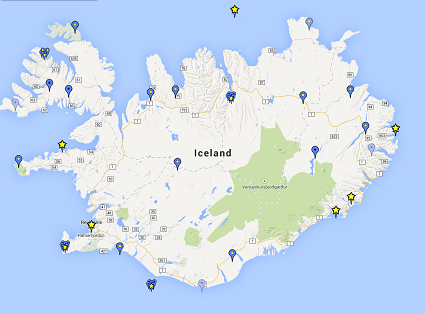Interesting position. Here are a few things that jump out at me.
So the first challenge is to find the baseline behaviour of a chaotic system that bounces between icebox and hothouse.
I am comfortable with your short had of "icebox and hothouse." Like I said, I am a layman so precision of analysis is not a feature for me. But we should probably note that "icebox and hothouse" do not refer to catastrophic change. If they did then life could not exist on planet earth. Climate seems to seek an equilibrium even as it moves from one cycle to the next. These cycles also occur gradually. The question is about whether this process is changing in dramatic and unexpected ways.
But we can't be sure if a snowstorm hitting NY in 24 hours will dump three feet of snow or six inches of snow.
I am not sure why this is thrown in there. We are talking about climate and not weather. We can't be sure about how much snow (weather) but we pretty well understand the mechanisms for producing snow and we can usually tell that winter will be cold (climate). The question is about whether something is happening globally to climate patterns. These could in fact have catastrophic implications for local weather but that is part of the debate.
The debate about causality is folly.
I am not sure that research is ever folly if it is done with integrity. Right now there is a broad consensus among noted scientists around the world that green houses gases began increasing during the industrial age and that continued increases have had a measurable impact on the temperature of the earth. There are also sophisticated models that attempt to predict what these increased temperatures will do to "live ability"for much of the human population and in turn what the dominoes might be for coastal cities impacted, huge populations shifts, strains on infrastructure, crop failure, increases in certain diseases, wars over resources, etc.
What these guys are discussing on here is how to read the data on these temperature changes and how reliable they are. In theory several different outcomes are possible with regard to anthropocentric global warming, but the argument for some is over how reliable the date is and whether we can ever construct a model that will be meaningful for gathering, interpreting and predicting major changes.




